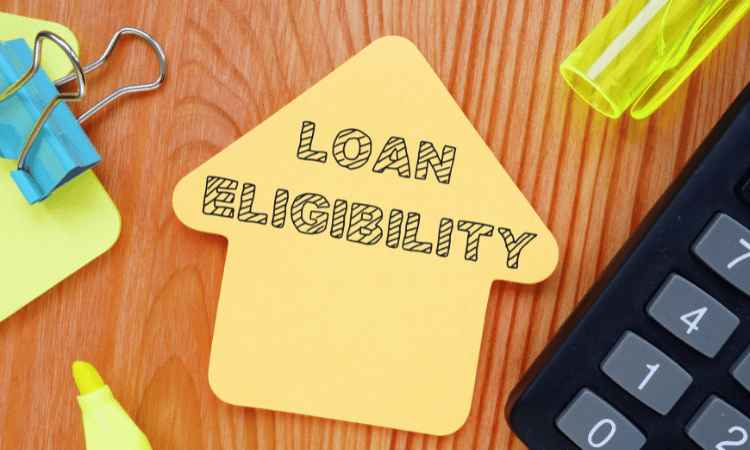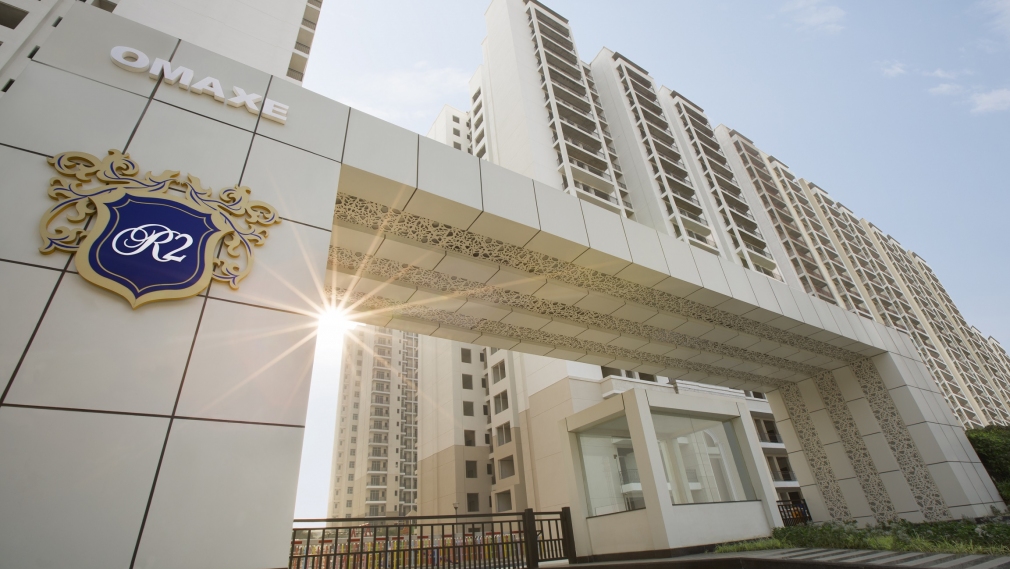Taking a loan for residential property in India is not new. However, often people ignore investing in commercial properties with secured financial help from the banks. The boom in technology has certainly opened numerous ways of investment and we can clearly see the effects after the Covid-19 breakout.
The real estate commercial investment has picked speed after COVID-19 and experts are sharing insights about heavy potential investment in the near future. But getting finances for commercial realty investment is a big question. The standard way is getting a loan however, the loan procedure for a commercial property is different than for residential properties.
Exactly why we are writing this article. You will find an ultimate guide to getting commercial property loans in India. Read the article completely and share your enquiries if you would have any.
Table of Contents:
- What is a Commercial Property Loan?
- Types of Commercial Property Loan
- The Difference between Commercial Loans and Residential Loans
- Commercial Loan Eligibility Criteria
- Documentations Required for a Commercial Property Loan
- Things to Consider Before Applying for a Commercial Property Loan
- How to Apply for a Commercial Property Loan in India?
- Conclusion
- FAQ’s
What is a Commercial Property Loan?

A commercial real estate loan is a financial product against a real estate property that is going to be or is being used as a commercial resource for the owner. These can be anything from a coffee shop to a big multi-level firm or simply a tower on rent.
Commercial loans are generally issued to only investors, generally the big sharks of the market who already operate commercial real estate. These commercial property loans in India are offered by banks, lenders, pension funds, private investors, and other business administration loan programs. Lenders first evaluate the nature of the property against which the loan is going to be used and the creditworthiness of the applicant. Please note that commercial property loans in India are more expensive than residential property loans.
If you want to know the difference between commercial property and residential property, then read this blog.
Types of Commercial Property Loan:

1. Term Loan:
A term loan is a commercial property loan type where the borrower must pay the total amount within a fixed time frame. If you’re going for the term loan, be mentally & financially ready to pay the amount to meet the deadlines issued at the very start of the deal.
These time frames can be divided into three types- short-term, midterm, and long-term. Short-term loans must be paid within 12 months, Mid-term loan offers you 12-36 months, and any time frame longer than 36 months falls under a Long-term loan.
2. Letter of Credit:
The letter of credit refers to a document that is issued by a financial institution to a lender. The borrower can use this LoC to buy or commercial real estate investments. Moreover, the document stands as a guarantor that the borrower will be rightfully regular in the repayment of the loan. In case, if he fails to repay the full amount, the financial firm that issues the LoC will repay the remaining required amount of wealth.
3. SME Collateral-Free Loans:
As the name suggests, these loans are completely free of any collateral. They are issued to small and medium-sized enterprises and granted to borrowers on the basis of their profile only. This includes annual income, location of operation, citizenship, age, prior work experience, etc. Don’t forget to include the credit history’s role.
4. Bank Guarantee:
This is one of the most popular types of loans where the Bank itself gives a guarantee to repay the money in any odd cases. In any case, if the borrower is unable to repay the money, the bank will take the responsibility of paying it. This commercial loan is very popular among new entrepreneurs or small-medium size businesses to enhance their business territory
If you want to know about how to finance your commercial real estate investment: A Guide to Loans and Mortgages, read this guide to learn more about financing your commercial property investment.
The Difference between Commercial Loans and Residential Loans:
– Both loans are for different purposes. Commercial loans are for business purposes whereas residential loans are for buying living properties.
– Commercial loans focus on the borrower’s business stability and credit score whereas residential loans consider personal credit score, income, employment, etc.
– Commercial loans require a higher down payment than residential loans.
– Commercial loan interest rates are higher than residential loans.
– The term for commercial loans is usually 5-10 years. The residential loan term goes up to 15-20 years.
– Commercial loan amounts are huge in comparison to residential loan amounts.
Commercial Loan Eligibility Criteria:

The commercial real estate investment loan criteria may differ from institutions to individual lenders. However, these differences will be minors of the agreement. The major & most important parts of the agreement will be the same for almost all the lenders out there.
- Applicants must be an Indian resident.
- They must have a stable income in the first place.
- Their credit score must be greater than or a minimum of 700.
- The applicants must be between 22 and 65 years old at the time of maturity.
- Applicants must have a consecutive 3 years of business continuity.
Also Read: Home Loan vs Land Loan: Same or Different?
Documentations Required for a Commercial Property Loan:
Like the eligibility criteria, you may need different documents at different lender desks. However, some very common documents are as suggested below.

Identity Proofs:
- Aadhar Card
- Voter Card
- Passport
- PAN Card
- Driving License
Proof of Business:
- Balance Sheet
- VAT and GST statement
- Income Tax Return document
- Profit & Loss statement document
- Bank Statement
- Partnership certified copy.
- Solo entrepreneurship declaration
- Certified copy of memorandum & articles of association.
Address Proofs
- Ration ID Card
- Passport
- Telephone Bill Document
- Electricity Bill
Also Read: What are the Legal Documents Required to Buy a Home in India?
Things to Consider Before Applying for a Commercial Property Loan:
1. Experience
The first wise decision for taking a commercial loan is to search for an experienced lender for your loan. Look for a lender who has already dealt with your interest properties and has a good reputation in the market. Such a lender will help you gain powerful insights and ways to solve any odd issues.
2. Loan Terms
The terms on the paper can make your way easier or turn things add for you. It would be wise to pay attention to the terms documented. Take time to read the document word-by-word by yourself only. As it’s a matter of money, we suggest you take it seriously or else you may fall into some unwanted situations.
3. Speed & Efficiency
We all know how much value real estate property investment holds. The only way to get the best deals is by doing things at pace. If you’re trying to get a loan, make sure your lender offers speed & efficiency in the deal. They must be quick to process your requests.
4. Fees
Each lender includes a fair amount of fees for their services. Not to mention that different companies will charge differently. Your motive should be finding some good companies whose charges are completely transparent and rightful. Don’t fall for the cheap deal trap as they may have hidden charges. Some typical fees are application, valuation, attorney, and ongoing services.
5. Interest Rates
Though the commercial property loan interest rates are generally higher, make sure to check the interest rates twice. Generally, this counts up to 10%-20%. Sign on the papers only when you’re confirmed about and comfortable with the rates the lender offers.
6. Reputation
Working with a reputable lender ensures your financial security and good services. A lender always curates ways to meet their customer’s needs and helps them all along the procedure. The only way to do so is by researching previous projects a lender has done.
7. Customer Support
Make sure to deal with a lender whose team supports their customers at all times. Good customer support smooths the procedures and also they solve all kinds of queries from customers. This will help you get a detailed understanding of the procedure and the opportunities hidden within the words of the agreement.
Also Read: 5 Common Myths On Home Loans Demystified
How to Apply for a Commercial Property Loan in India?
- Research the most suitable lender for your job.
- Evaluate your eligibility for the loan.
- Prepare all documentation such as income tax returns, financial statements, property documents etc.
- Go to the lender’s website and apply for a loan.
- Complete the loan application form.
- Make a collateral assessment to determine the loan amount.
- Legal checks and credit appraisal will be done.
- Once your application is approved, the lender will release a sanction letter mentioning all the conditions.
- Your loan has been sanctioned. Accept the deal by signing the agreement.
Are you thinking of investing in commercial and residential properties in India and searching for the best real estate company in India? Read this blog, where we provide everything needed to choose the best real estate company in India.
Conclusion:
Commercial property loans in India pass through some complex systems. However, we have tried to explain all these to you in this article. We have discussed the process of getting a loan, the documents needed, and things to consider before making the deal. For any further support, you can contact us.

FAQs:
1. How to find the right lender for a commercial real estate loan?
– You must research and start networking with people who have their hands in the commercial loan industry.
2. What are the eligibility criteria for commercial real estate loans?
– The borrower must have a stable income source and a good credit score in India. Above we have written down more of them. Check them out.
3. Can a salaried person invest in a commercial property?
– Yes, a salaried person can apply for commercial property loans in India.


